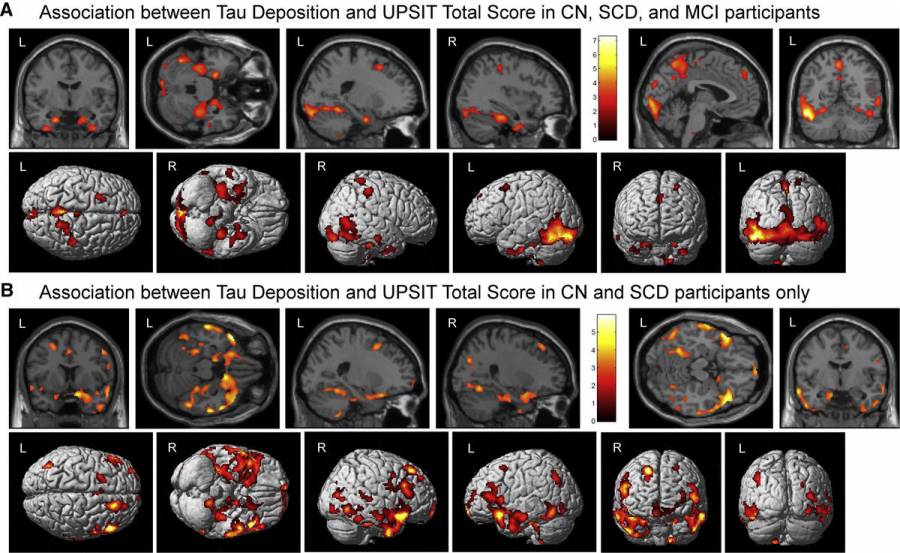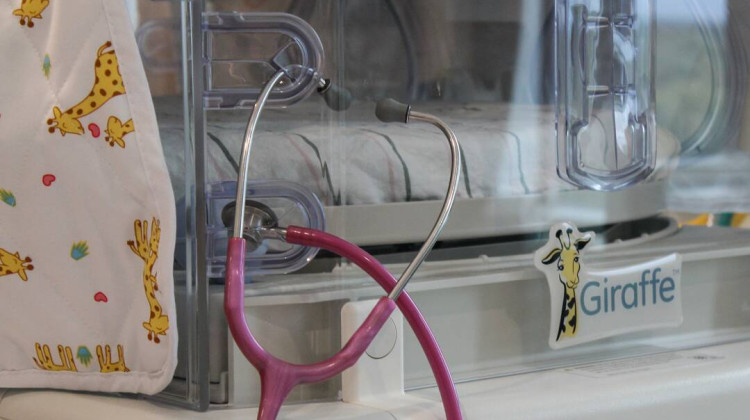
Shannon Risacher led a study focused on how people's sense of smell could be connected to Alzheimer's disease.
Eric SchochYour sense of smell may give doctors early clues as to whether you’ll deal with Alzheimer’s disease. Since there’s no cure for Alzheimer’s disease, researchers are focused on ways to identify early signs and create treatments before dementia sets in.
Dr. Shannon Risacher is one of those researchers. She’s at Indiana University's School of Medicine Radiology and Imaging Science Department, where she led a study focused on how people’s sense of smell could be connected to Alzheimer's disease.
Risacher and a team of researchers gave a “scratch and sniff” test of 40 different smells to a group of 34 people.
“What we wanted to do, was look at whether or not the performance on this test was linked to certain proteins known to be involved in the Alzheimer’s disease in the brain,” said Risacher.
The findings suggest there’s an association between a low score on the “scratch and sniff” test and the protein that accumulates in regions of the brain where Alzheimer’s tends to show up.
The study also found that the sense of smell can be associated with atrophy in certain areas of the brain.
Dr. Evan Fletcher works in the the Imaging of Dementia and Aging lab, or IDeA Lab, as a project scientist with the Department of Neurology at the University of California Davis School of Medicine. He says the study’s findings are exciting.

These images show areas where increased tau deposition, a protein in the brain, is associated with low test scores on a smell test. (The Journal Alzheimer's and Dementia: Diagnosis, Assessment and Disease Monitoring)
“The study is showing that you could have an early test that might alert somebody to further investigate it.” Fletcher said. “But right now it’s (the study’s findings) too early to say that anything is definitive.”
Risacher said doctors are particularly interested in this study because a smell test can become an early screening tool for Alzheimer’s. It’s also easier to administer compared to how screenings are done now.
“Currently the way we visualize the amyloid and tau (two proteins in the brain connected with Alzheimer’s) is through PET scans and they’re (the scans) perfectly safe but they are expensive and relatively invasive,” said Risacher.
Risacher is looking to get more funding to support a larger study with more participants. She also hopes to advance the study by incorporating a memory test.
“I think the smell test can be used on its own or maybe in collection with other types of tests as a screening tool that people can get every year.” Risacher said. This would be on par with an annual physical.
The study was published late last year in the journal Alzheimer's and Dementia: Diagnosis, Assessment and Disease Monitoring.
This story was produced by Side Effects Public Media, a news collaborative covering public health.
 DONATE
DONATE









 Support WFYI. We can't do it without you.
Support WFYI. We can't do it without you.